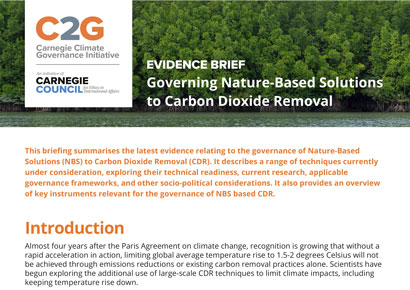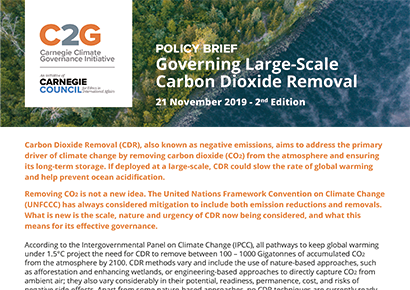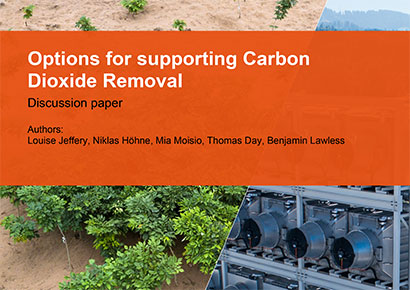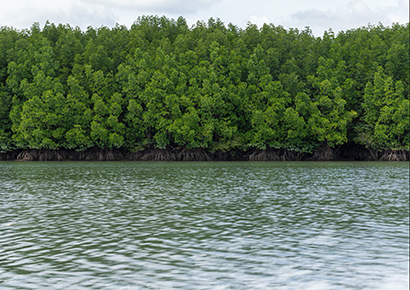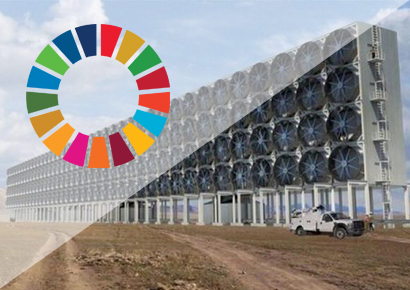C2GLearn
Governance of Nature-Based Approaches
to Carbon Dioxide Removal
This topic aims to present a detailed overview of nature-based approaches to large-scale Carbon Dioxide Removal (CDR) to audiences interested in understanding the basic principles, as well as the benefits and risks associated with this suite of approaches to CDR and the underlying governance issues associated with it. It seeks to answer the following questions:
- What are these nature-based approaches to large-scale CDR and what role could they play in managing climate risk?
- What do we know about the potential risks and benefits associated with these approaches?
- What do we know about the readiness, potential cost and sustainability of nature-based approaches to large-scale CDR?
- How do we make informed decisions on how to implement nature-based approaches to capture carbon dioxide while protecting ecosystems and people’s livelihoods?
- What are some of the governance considerations around nature-based approaches to large-scale CDR?
- How might some of the governance challenges be considered or addressed in the context of current governance processes and mechanisms?
Webinars
This Webinar features three ten-minute expert overviews on the governance of nature-based approaches to large-scale CDR. It will be followed by a 45-minute moderated Q&A session, during which audience members are invited to submit written questions via the Zoom chat. Speakers include:
Holly Buck / United States of America
 Holly Buck is an Emmett Climate Engineering Fellow in Environmental Law and Policy at UCLA School of Law for 2019-2020, and Assistant Professor of Sustainability and the Environment at University of Buffalo beginning Fall, 2020. Her research focuses on environmental sociology, science and technology studies, and international agriculture and rural development. She received her B.A. from the University of Maryland Baltimore County, her M.Sc. in Human Ecology from Lund University in Sweden, and her Ph.D. in Development Sociology from Cornell University.
Holly Buck is an Emmett Climate Engineering Fellow in Environmental Law and Policy at UCLA School of Law for 2019-2020, and Assistant Professor of Sustainability and the Environment at University of Buffalo beginning Fall, 2020. Her research focuses on environmental sociology, science and technology studies, and international agriculture and rural development. She received her B.A. from the University of Maryland Baltimore County, her M.Sc. in Human Ecology from Lund University in Sweden, and her Ph.D. in Development Sociology from Cornell University.Nathalie Seddon / United Kingdom
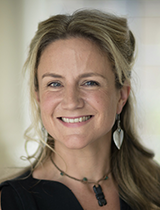
Youba Sokona / Mali
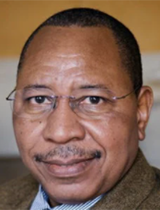
Moderator: Paul Rouse / United Kingdom
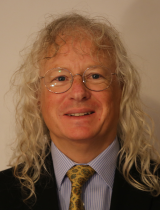
Rouse has a record of accomplishment in taking research evidence into the government policy arena, advising key actors on a wide range of issues from climate change adaptation and geoengineering, to enhancing STEM skills within schools. Internationally, he worked with the Belmont Forum, Future Earth and was an EU Framework Programme National Contact.
Most recently, Rouse has been working with the UK Research & Innovation, taking a particular interest in enhancing ethical thinking and responsible innovation approaches within engineering.
He has postgraduate and professional qualifications and a MA and PhD. Rouse is a Visiting Fellow in Politics and International Relations at the University of Southampton and a Fellow of the Royal Society of Arts.
Introduction
Presentations
Slide presentations
- Youba Sokona Situating Carbon Dioxide Removal in the overall conversation on Nature-Based Approaches, Nature-Based Solutions and the wider sustainable agenda [pdf]
- Nathalie Seddon Nature-based Solutions to Climate Change: opportunities and risks [pdf]
- Holly Buck Governance of Nature-Based Approaches to Carbon Dioxide Removal [pdf]
Q&A (Webinar 1)
Q&A (Webinar 2)
Campfire Chat
This Campfire Chat aimed to provide insights into diverse viewpoints on the governance of nature-based approaches to large-scale CDR (presented in the webinar above), in a relatively informal, moderated, semi-structured discussion between experts. Audience members were invited to suggest topics via the Zoom chat. Guests included:
Chunquan Zhu / China
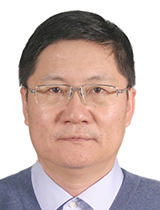
Most recently Dr. Chunquan Zhu served as the International Union for Conservation of Nature (IUCN) Country Representative for China. Among his accomplishments are the initiation and development of a new concept of Gross Ecosystem Product (GEP), the pilot testing of the national park and protected area systems in China, and the initiation of FSC certification in the country. Chunquan’s experience will enable him to better support and build the Nature Initiative & TFA community, as well as to develop a Business Coalition for Ecological Civilization in China.
Dr. Chunquan Zhu is a dedicated research scientist and conservationist in China, where he has gained a high profile in the forestry and nature conservation sectors. During the course of his career, he has accumulated a broad range of experience in research, programme management, fundraising, government liaison, policy advocacy, corporate partnerships and institutional development initiatives. Since 2012, he has served as the IUCN Country Representative for China. He was the Conservation Director and Director of Forest Programme of WWF China from 2000 to 2012, a Research Professor of Chinese Academy of Forestry since 1997.
Dr. Chunquan Zhu received his doctor’s degree in ecology from Northeast Forestry University in 1991, and had overseas studies as the FAO research fellow in Canada, Belgium, UK and work experience at WWF US in DC. He was appointed as the guest researcher of National Ecological Key Laboratory of Chinese Academy of Science in 2005. He has worked with an exceptionally diverse range of organizations during his career, including local community groups, research institutions, Chinese government bodies at various levels, international organizations, the media, NGOs, donor agencies and private sector companies.
Kate Dooley / Australian
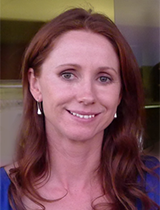
Kate co-authored the paper ‘Carbon‐dioxide Removal and Biodiversity: A Threat Identification Framework’ published in a forthcoming issue of Global Policy,
Manuel Pulgar-Vidal / Peru
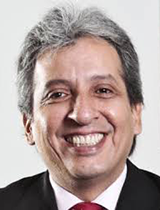
He has 35 years of experience in environmental law and policy. He served as Minister of the Environment of Peru (2011 to 2016) and President of the Twentieth Conference of the Parties to the United Nations Framework Convention on Climate Change – COP20 in 2014. He was the Executive Director of the Peruvian Society for Environmental Law, an influential institution in Latin America. He has a law degree from the Pontificia Universidad Católica del Perú, where he is a professor, and has completed studies for a master’s degree in Business Law at the Universidad Peruana de Ciencias Aplicadas.
He is a Board member of Forest Trends, Amazon Conservation Association and Peruvian Society of Environmental Law and a member of the Assembly of the World Wide Fund for Nature – Colombia. He has recently been added to the Aspen Institute Management and Leadership Advisory Group. He is the chairman of the evaluation council of the French sovereign Green Bonds. He is an active member of different groups aimed to get strong outcomes as a part of the formal climate talks and the non-party stakeholders’ agenda. He has been recognized by the governments of France, Germany and Spain and by the Royal Scottish Geographical Society for his contribution to the Paris Agreement.
René Castro Salazar / Costa Rica
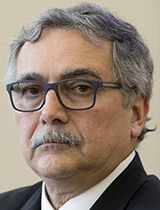
He also lectured in prestigious universities such Harvard, Tokyo, Yale, Zurich Tech, LSE, INCAE and several Latin American Universities. He was a Fellow of the Mossavar-Rahmani Centre for Business and Government, Harvard University.
Mr Castro-Salazar has held ministerial positions in Costa Rica as Minister of National Resources, Minister of Foreign Affairs, and Minister of Environment, Energy and Telecommunications between 1994 and 2014. In February 2016, Mr Castro-Salazar was appointed Assistant Director-General of the the Food and Agriculture Organization of the United Nations, Forestry Department (FO).
By decision of the Council 164th FAO works now with a modular and flexible structure aiming to ensure efficiency, effectiveness and cross-sectoral collaboration. Mr Castro-Salazar is currently leading policy and strategy related to climate change, biodiversity and environment.
Sandeep Sengupta
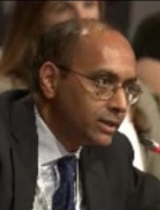
Sandeep holds a Ph.D. in International Relations from the University of Oxford and a master’s degree from the London School of Economics.
Janos Pasztor / Hungary & Switzerland
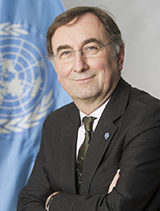 Janos Pasztor (a Hungarian and a Swiss citizen) is Senior Fellow of the Carnegie Council for Ethics in International Affairs, and is Executive Director of the Carnegie Climate Governance Initiative (C2G).
Janos Pasztor (a Hungarian and a Swiss citizen) is Senior Fellow of the Carnegie Council for Ethics in International Affairs, and is Executive Director of the Carnegie Climate Governance Initiative (C2G).
He has four decades of work experience in the areas of energy, environment, climate change, and sustainable development. Before taking up his current assignment he was UN Assistant Secretary-General for Climate Change in New York under Secretary-General Ban Ki-moon.
Earlier, he was Acting Executive Director for Conservation (2014), and Policy and Science Director (2012-2014), at WWF International. He directed the UNSG’s Climate Change Support Team (2008-2010) and later was Executive Secretary of the UNSG’s High-level Panel on Global Sustainability (2010-2012). In 2007 he directed the Geneva-based UN Environment Management Group (EMG). During 1993-2006 he worked and over time held many responsibilities at the Climate Change Secretariat (UNFCCC), initially in Geneva and later in Bonn.
His other assignments included: the Secretariat of the UN Conference on Environment and Development (Earth Summit ’92); Stockholm Environment Institute; United Nations Environment Programme (UNEP); Secretariat of the World Commission on Environment and Development (Brundtland Commission); the Beijer Institute; and the World Council of Churches.
He has BSc and MSc degrees from the Massachusetts Institute of Technology (MIT).
C2G strives to achieve a diversity of views and backgrounds across all its events. To that end, it is always open to feedback and suggestions regarding future participants and topics, to ensure a range of perspectives by sector, gender, race, geography, age and other dimensions. It will not always achieve the necessary diversity in all circumstances due to issues of availability and familiarity, but aims over time to expand the range of contributors able to address its issues, subject to the broad principles outlined in its mission statement.
